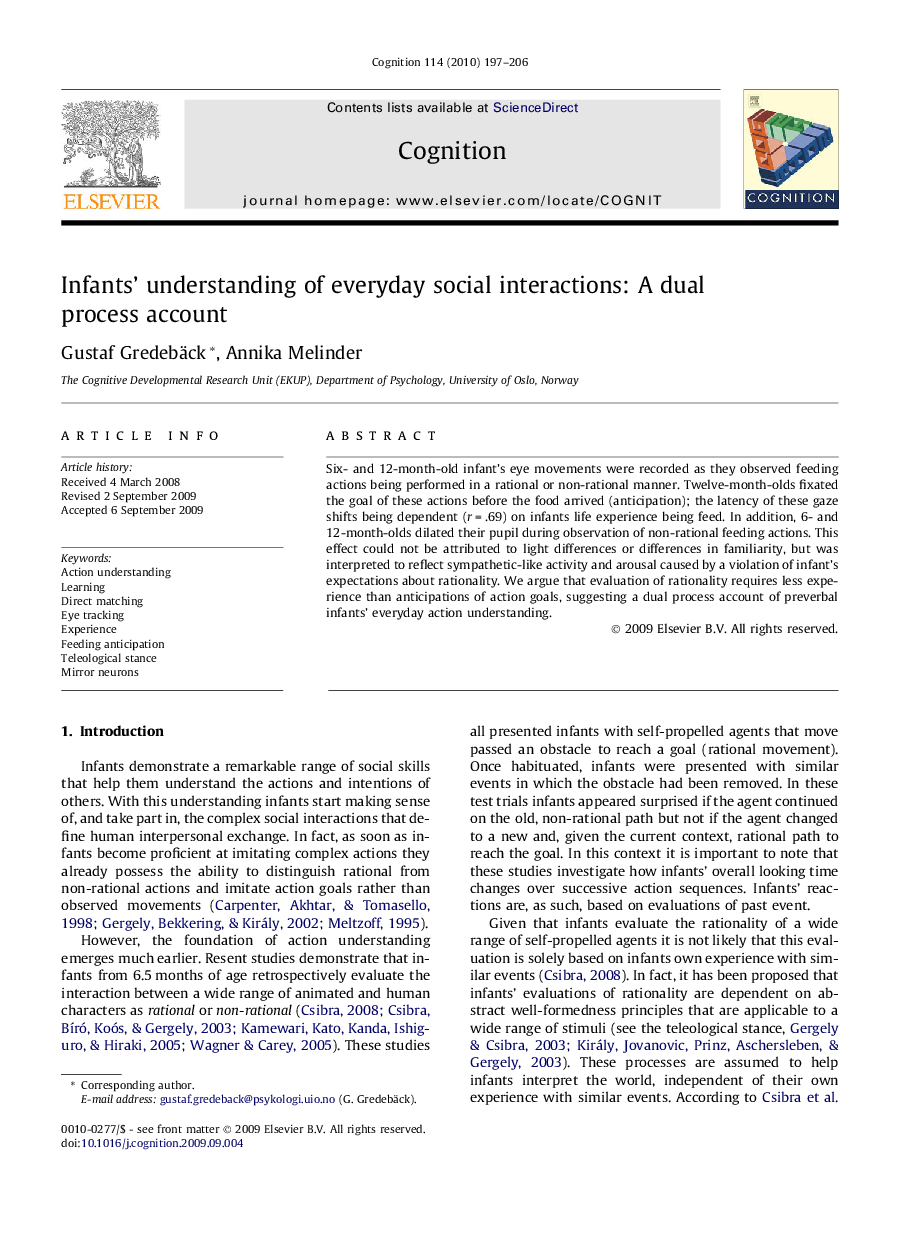| Article ID | Journal | Published Year | Pages | File Type |
|---|---|---|---|---|
| 926899 | Cognition | 2010 | 10 Pages |
Six- and 12-month-old infant’s eye movements were recorded as they observed feeding actions being performed in a rational or non-rational manner. Twelve-month-olds fixated the goal of these actions before the food arrived (anticipation); the latency of these gaze shifts being dependent (r = .69) on infants life experience being feed. In addition, 6- and 12-month-olds dilated their pupil during observation of non-rational feeding actions. This effect could not be attributed to light differences or differences in familiarity, but was interpreted to reflect sympathetic-like activity and arousal caused by a violation of infant’s expectations about rationality. We argue that evaluation of rationality requires less experience than anticipations of action goals, suggesting a dual process account of preverbal infants’ everyday action understanding.
